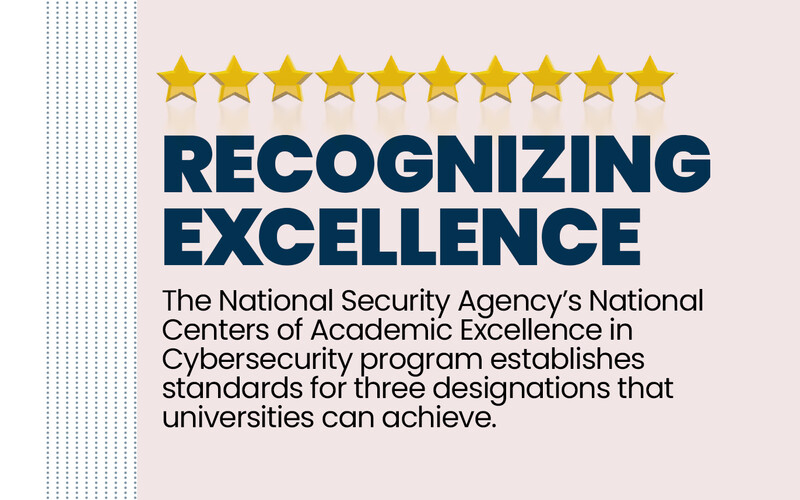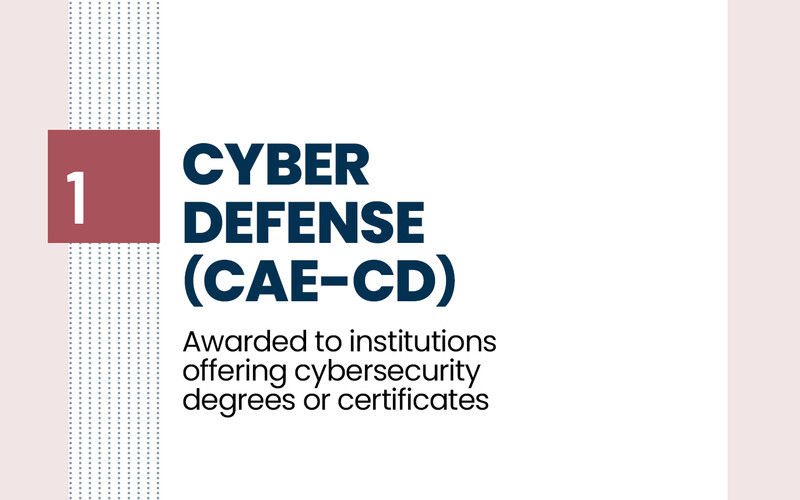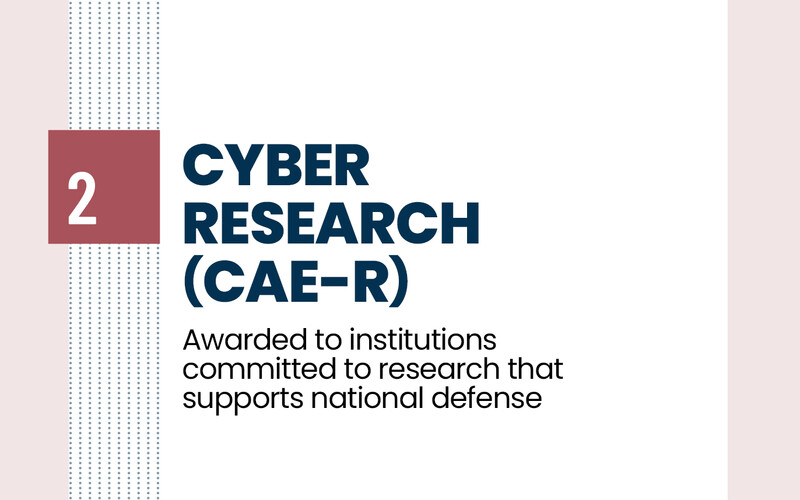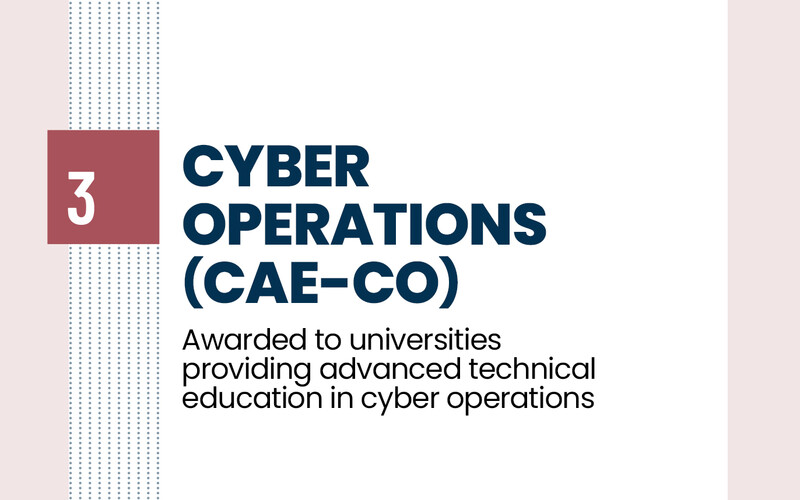“It’s a sandbox environment that’s completely separated from all other systems,” says Katerina Goseva-Popstojanova, program director of undergraduate studies in cybersecurity and a professor in WVU’s Lane Department of Computer Science and Electrical Engineering. “It lets you create all kinds of realistic scenarios that provide hands-on support for the principles that students learn in class.”
In that pen testing exercise, for example, the Linux and Windows machines are configured with flaws that a real attacker might try to exploit. The challenge for students is to “find the vulnerabilities, escalate the privileges and move laterally through the system” as if they were security professionals, Goseva-Popstojanova says. Students also learn to use tools driven by artificial intelligence for malware detection and data analytics, and they experiment with everything from firewalls to Internet of Things devices as they hone their cybersecurity expertise.
Designated as a National Center of Academic Excellence in Cyber Defense Education (CAE-CD) by the National Security Agency, leaders in WVU’s bachelor’s program in cybersecurity now see its cyber range as critical to its programming for students pursuing cybersecurity careers.
“This is about preparing future professionals with hands-on experience,” Goseva-Popstojanova says. “Employers are looking for people with the skills our students are developing here.”
Cyber Ranges Offer Risk-Free, Relevant Cybersecurity Experience
In fact, according to a recent survey by ISACA, while cybersecurity jobs remain in high demand, organizations across industries are reporting a decline in open entry-level positions in the field. Instead, explains Marty Barrack, CISO and chief legal and compliance officer at XiFiN and a member of ISACA’s Emerging Trends Working Group, companies are seeking tested candidates who can step in and add value on day one.
“When we go out and hire, even for an intern position, the more real-life experience you have, the more we’re going to be interested,” Barrack says. That’s because of the rapidly evolving cybersecurity landscape, an AI-enhanced world of tools and techniques that’s making the job more complex. “We may not require that you’ve actually worked in the field, but it’s important that you bring hands-on skills,” he explains.














